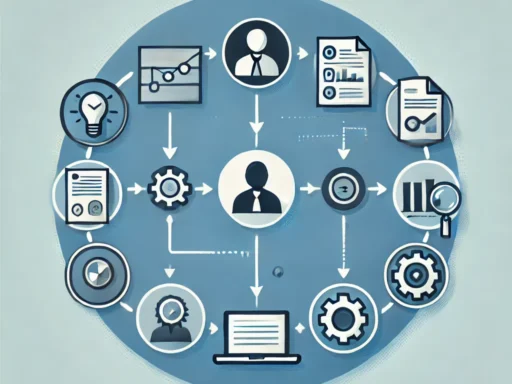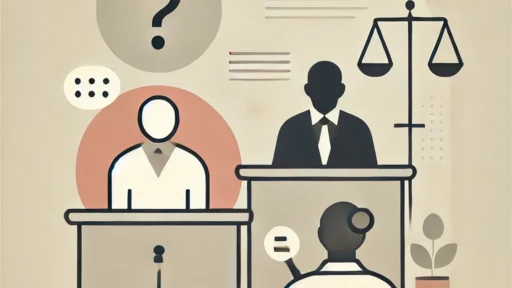Navigating the legal landscape can be daunting, especially when it comes to understanding depositions. These pre-trial procedures play a crucial role in gathering evidence and shaping the outcome of a case. Yet, many find the process intimidating and confusing.
This comprehensive guide demystifies depositions, breaking down what they are, why they’re important, and what to expect. Whether you’re a legal professional, a witness, or simply curious, this resource will equip you with the knowledge to approach depositions confidently.

Understanding Depositions
Depositions are part of the discovery process in litigation, where parties gather information from witnesses under oath before a trial. Attorneys ask questions, and witnesses provide sworn testimony. Transcripts from depositions often serve as evidence during trial proceedings. These sessions occur outside the courtroom, typically in law offices.
What is the Purpose of Depositions?
Depositions aim to uncover detailed information about a case, allowing attorneys to understand facts, identify strengths and weaknesses, and anticipate the opponent’s strategy. Testimonies obtained can be used to impeach a witness who delivers contradictory statements in court.
Who Is Involved?
Depositions involve several essential participants, each playing a significant role. Understanding their functions helps clarify the deposition process.
Attorneys
Attorneys represent the parties involved in the case. They ask questions to elicit information, challenge testimonies, and strategize based on responses.
Witnesses
Witnesses provide sworn testimony about case facts. These individuals often include expert witnesses, eyewitnesses, or parties directly involved in the case.
Court Reporters
Court reporters transcribe the deposition. They ensure an accurate and verbatim record of the testimony, which is vital for reference during trials or further legal proceedings.
Videographers
Videographers maintain a visual record of the deposition. They capture witness demeanor and nuances that a transcript may not reveal.
Parties Involved
Parties involved in the case may attend. Their presence ensures firsthand observation of the testimony and responses, influencing case strategy.
Interpreters
Interpreters facilitate communication for witnesses not fluent in English. They ensure the witness understands the questions and can respond accurately.
Judges (Sometimes)
Judges occasionally participate to rule on objections or manage disputes. Their involvement is rare and typically limited to contentious depositions.
Common Questions Asked During Deposition
During depositions, attorneys ask various types of questions:
- Background Questions: Covering basics like name, occupation, and relationship to the parties.
- Fact-specific Questions: Relating directly to the issues in the case.
- Hypothetical Questions: To gauge the witness’s understanding and perspective on possible scenarios.
How to Prepare for the Deposition Process
Preparation involves reviewing relevant documents, understanding the scope of questioning, and practicing answering potential questions succinctly and truthfully. Legal counsel often conducts mock depositions to simulate the experience.
Legal Implications
Deposition testimonies hold legal weight. Inconsistent answers between deposition and trial can damage credibility. Attorneys can use deposition transcripts to challenge or support arguments in court, making accuracy crucial.
Confidentiality
While depositions aren’t public proceedings, confidentiality depends on the case and jurisdiction. Protective orders can seal parts of the deposition if sensitive information is involved.
How Do Depositions Work?
Deposition processes involve several structured steps ensuring thorough information gathering. Attorneys from both sides usually agree on a date, time, and location. These settings, often law offices, provide neutral grounds.
Preliminary Planning:
Attorneys issue a notice of deposition, specifying details like date, names, and topics. Subpoenas might compel witness attendance if necessary.
Documentation:
Court reporters transcribe the proceedings. In some cases, videographers record the sessions, capturing both verbal and non-verbal cues.
Swearing In:
Witnesses take an oath to testify truthfully. Oath administration occurs before any questioning starts.
Questioning:
Attorneys ask witnesses a range of questions, starting with background information. They then delve into detailed case facts and hypothetical scenarios to elicit comprehensive responses.
Objections
Attorneys can raise objections during questioning, though witnesses must usually still answer unless it involves privileged information.
Reviewing Transcripts
Post-deposition, witnesses may review transcripts for accuracy. Corrections can be made within a stipulated period.
Utilizing Testimonies
Deposition testimonies are used in trials for impeachment or as evidence, especially if witnesses become unavailable.
Depositions themselves are non-public unless ordered otherwise. Protective orders can safeguard sensitive details, maintaining confidentiality based on jurisdiction.
The Role of Depositions in Litigation
Depositions are crucial in litigation for fact-finding and evidence preservation. Attorneys use depositions to gather witness testimony, clarifying case details and finding inconsistencies that could impact trial outcomes. This process helps attorneys evaluate the strength of their case and develop strategies.
Depositions enable attorneys to discover new information that might not be accessible through documents alone. Witnesses provide sworn testimony, detailing their knowledge and involvement in the case, which can inform both the pre-trial and trial phases.
Attorneys often use deposition transcripts to impeach witnesses if their in-court testimony deviates from their deposition statements. Consistent depositions can strengthen a case, while inconsistencies can weaken it, making the deposition phase critical for both sides.
Additionally, depositions allow attorneys to assess witness demeanor and credibility. Observing how a witness responds under questioning can affect trial strategies. Videotaped depositions provide visual context not reflected in transcripts, offering a more comprehensive view of witness behavior.
Depositions serve multiple litigation purposes: fact-finding, evidence preservation, witness assessment, and strategy formation. Their significance in building a robust legal case cannot be overstated.
Rules Governing Depositions
Federal Rules of Civil Procedure
The Federal Rules of Civil Procedure (FRCP) dictate the process for depositions in federal cases. Rule 30 permits each party in a lawsuit to depose any person, including parties and non-parties, without court permission, although limited to ten witnesses per side. Depositions usually last no more than seven hours in one day, unless the court orders otherwise or the parties agree to different terms.
Notice and Subpoenas
A party must provide written notice to all parties involved in the case before taking a deposition. The notice should include the time and place of the deposition and the name and address of the person to be examined. If the deponent is not a party to the case, a subpoena may compel their attendance or document production.
Objections During Depositions
Attorneys often raise objections during depositions to questions posed to witnesses. Common objections address the relevance, leading nature, or form of questions. Witnesses must still answer unless the objection concerns privilege, harassment, or an issue for court resolution.
Recording the Deposition
Depositions may be recorded stenographically or via audio or video means. Court reporters transcribe stenographic recordings to create a written record. Video recordings capture non-verbal cues, adding value when assessing witness credibility at trial.
Handling Privileged Information
Privileged information, such as attorney-client communications or protected work products, remains off-limits during depositions. If a question seeks privileged information, attorneys instruct witnesses not to respond, preserving the privilege.
Reviewing and Signing Transcripts
Witnesses have the right to review and correct their deposition transcripts for accuracy. They should identify any errors and submit errata sheets within a specified timeframe, usually 30 days after receiving the transcript.
Sanctions for Non-Compliance
Courts may impose sanctions for deposition-related non-compliance. Potential sanctions include fines, order to compel compliance, or even case dismissal. Ensuring adherence to rulesavoids such penalties and mitigates delays.
State-Specific Regulations
While the FRCP governs federal cases, individual states have their own rules for depositions in state courts. Attorneys must familiarize themselves with both sets of rules to navigate depositions effectively in different jurisdictions.
Remote Depositions
With advances in technology, remote depositions have become more prevalent, especially post-2020. Platforms like Zoom facilitate remote attendance, making depositions more accessible while adhering to appropriate procedural rules.
Protective Orders
Courts may issue protective orders to limit discovery scope or method to shield a party or deponent from undue burden or harassment. Protective orders can restrict questioning topics, mandate confidentiality, or alter deposition logistics for fairness and efficiency.
Rules governing depositions ensure the process remains structured, fair, and effective in gathering essential case information. These rules balance litigant rights while maintaining procedural integrity throughout the deposition phase.
Types of Depositions
Depositions come in several types, each serving a specific purpose in the legal process.
Oral Depositions
Oral depositions involve direct questioning of a witness under oath. Attorneys ask questions, and the witness provides verbal answers in presence of a court reporter or officer who transcribes the session. This form captures the demeanor and spontaneity of the witness’s responses, crucial for trial preparation.
Written Depositions
In written depositions, attorneys submit a list of questions in advance. The witness answers these questions in writing, under oath, without the presence of opposing counsel. While less dynamic than oral depositions, this method is useful for straightforward inquiries or logistical constraints.
Deposition by Written Questions
This type involves submitting questions to a court reporter. The court reporter then asks these questions to the witness under oath, documenting the answers. Deposition by written questions offers flexibility, especially when dealing with out-of-state witnesses or simpler testimony.
Expert Witness Depositions
Expert witness depositions focus on individuals deemed experts in a particular field. These depositions gather insights and opinions related to the expert’s area of expertise, helping to clarify technical aspects of a case. Attorneys often use these depositions to challenge or support expert testimony.
Videotaped Depositions
Videotaped depositions record the witness’s testimony visually and audibly. This format is particularly beneficial if the witness cannot attend the trial in person. It also provides a richer medium to capture non-verbal cues, aiding jurors in assessing the credibility of the witness.
Each type of deposition serves a unique role within litigation, tailoring the approach to the needs of the case and logistical circumstances.
How to Choose the Right Attorney for Your Deposition
Evaluate Expertise
Identify attorneys specializing in depositions, especially those with a focus in the relevant legal field. Look for attorneys who have a strong track record in similar cases for optimal results. Specialization ensures familiarity with deposition nuances and related legalities.
Review Credentials
Check the attorney’s professional background, including education, certifications, and memberships in legal organizations. Ensure that they have the necessary qualifications and bar admissions. Reputable attorneys often hold memberships in organizations such as the American Bar Association.
Assess Experience
Determine the attorney’s experience with depositions by asking about past cases. Note the complexity of cases handled and success rates. Experience often translates to strategic proficiency in managing depositions.
Examine Reputation
Research the attorney’s reputation within the legal community and among past clients. Read reviews, testimonials, and peer evaluations. High ratings and positive feedback indicate reliability and expertise.
Communication Skills
Ensure the attorney communicates clearly and effectively. They should explain complex procedures, provide regular updates, and be responsive to questions. Good communication helps in understanding deposition strategies.
Consider Logistics
Ensure the attorney’s office location and schedule align with your needs. Proximity to the venue and availability at key deposition dates minimize logistical hurdles. Convenience can significantly impact the deposition process.
Fee Structure
Clarify the attorney’s fee structure, including hourly rates, retainer fees, and any additional costs. Understanding the financial commitment helps in budgeting and avoids conflicts later.
Personal Comfort
Ensure a comfortable rapport with the attorney. Feeling confident and at ease with your attorney can affect the quality of your engagement and cooperation during depositions. Personal comfort enhances overall communication and effectiveness.
Strategies for conducting effective depositions
Preparation and Research
Attorneys should gather comprehensive background information on the witness. Research encompasses reviewing relevant documents, prior statements, and expert reports. Identify key facts and contradictions to explore during questioning. The goal is constructing a clear understanding of what to expect.
Formulating Questions
Craft precise, direct questions that elicit detailed responses. Avoid compound questions to mitigate confusion. Structure questions to progress from general to specific, focusing initially on broad topics before drilling down into intricate details. Examples include starting with an overview of the incident, then addressing specific actions taken by the witness.
Active Listening and Observation
Maintaining keen attention to the witness’s responses reveals inconsistencies. Note verbal cues and body language to identify discomfort or evasion. Ensure follow-up questions target these areas, pressing for clarity and truthfulness. Active listening helps attorneys stay adaptive and responsive throughout the deposition process.
Managing the Deposition Timeline
Allocating time strategically ensures all key areas receive adequate attention. Prioritize essential questions and be prepared to adjust the sequence based on witness responses. Time management also involves balancing thoroughness with efficiency to avoid unnecessary delays.
Utilizing Technology and Exhibits
Incorporate technological tools and exhibits to support the questioning process. Use digital presentations, documents, video clips, and diagrams to clarify points. Tools like video conferencing software, especially for remote depositions, can enhance communication and engagement.
Handling Objections
Understand common objections and how to navigate them. If opposing counsel objects, attorneys may choose to rephrase the question or persist within legal boundaries. Anticipate potential objections based on the case’s context and prepare responses accordingly.
Maintaining Professionalism
Professional demeanor affects deposition outcomes. Attorneys must remain calm, respectful, and composed, even in contentious exchanges. This approach fosters a productive environment and can positively influence witness responses and overall deposition quality.
Post-Deposition Review
After the deposition, review the transcript and any recordings meticulously. Identify follow-up questions or areas needing further clarification. This step is crucial for reinforcing case strategies and preparing for trial or settlement negotiations.
Collaboration with Colleagues
Engaging in collaborative discussions with colleagues before and after depositions enriches insights. Colleagues may suggest alternative questioning strategies, highlight potential weaknesses, or provide additional context that strengthens the deposition’s effectiveness.
Common Challenges and How to Overcome Them
Handling Nervous Witnesses
Many witnesses experience anxiety during depositions. Their anxiety can affect the accuracy of their testimonies. Attorneys alleviate this by ensuring the witness’s comfort through clear communication and brief breaks. Familiarizing witnesses with the deposition process helps reduce their fears.
Dealing with Uncooperative Witnesses
Uncooperative witnesses can disrupt the deposition flow. Attorneys address this by remaining calm, sticking to precise questions, and reminding the witness of legal obligations to respond. Persistent non-cooperation may require court intervention.
Managing Objections from Opposing Counsel
Frequent objections from opposing counsel can impede deposition progress. Attorneys counter this by understanding objection rules and calmly requesting the reasons for objections. They can also note frivolous objections for future court discussions if frequent objections persist.
Navigating Language Barriers
Language barriers complicate the deposition process when witnesses speak different languages. Attorneys provide qualified interpreters to ensure accurate communication. Interpreters undergo a briefing before the deposition to understand specific terminology and context.
Addressing Incomplete or Evasive Answers
Witnesses sometimes provide incomplete or evasive answers. Attorneys counter this by asking follow-up questions in varied forms. They can clarify ambiguities by restating or rephrasing questions and cross-referencing earlier statements.
Technical Issues in Remote Depositions
Remote depositions face technical challenges, such as poor connectivity or equipment failure. Attorneys anticipate these by conducting pre-session checks, using reliable platforms, and having backup communication methods. They can pause proceedings to solve issues if technical problems arise during the session.
Managing Time Constraints
Time constraints pressure attorneys to cover all essential topics. Prioritizing key areas and formulating concise questions help manage limited deposition time effectively. Efficiently handling procedural aspects and promptly addressing issues assists in saving time.
By addressing these common challenges, attorneys can conduct depositions more smoothly and gather the necessary information effectively.
Simplify Your Deposition Process with BlueNotary
Navigating the complexities of legal proceedings can be challenging. BlueNotary offers a convenient online notarization platform to streamline your deposition process. Our secure and efficient service allows you to notarize documents from the comfort of your home or office, ensuring that all your legal paperwork is handled professionally and promptly.
Visit BlueNotary today to learn more about how we can assist you in your legal journey.
Frequently Asked Questions About Depositions
Q1. What is the difference between a deposition and a trial?
A deposition is an out-of-court process where witnesses provide sworn testimony before a trial begins. The information gathered during a deposition is used to prepare for the trial, whereas the trial itself is the formal presentation of evidence and arguments before a judge or jury.
Q2. Can deposition testimony be used in court?
Yes, deposition testimony can be used in court. It can be presented as evidence if a witness is unavailable to testify in person, or it can be used to challenge the credibility of a witness by highlighting inconsistencies in their statements.
Q3. How long does a deposition usually last?
The length of a deposition can vary depending on the complexity of the case and the number of questions asked. Generally, depositions last anywhere from a few hours to a full day. In some cases, they may extend over multiple days.
Q4. What should I bring to a deposition?
You should bring any documents or evidence requested by your attorney, a photo ID, and any notes you have prepared. It’s also a good idea to bring a notepad and pen to take notes during the deposition.
Q5. Can I refuse to answer questions during a deposition?
In general, you are required to answer questions during a deposition. However, you can refuse to answer questions that are privileged, irrelevant, or abusive. Your attorney can object to such questions and provide guidance on when it is appropriate to refuse to answer.






